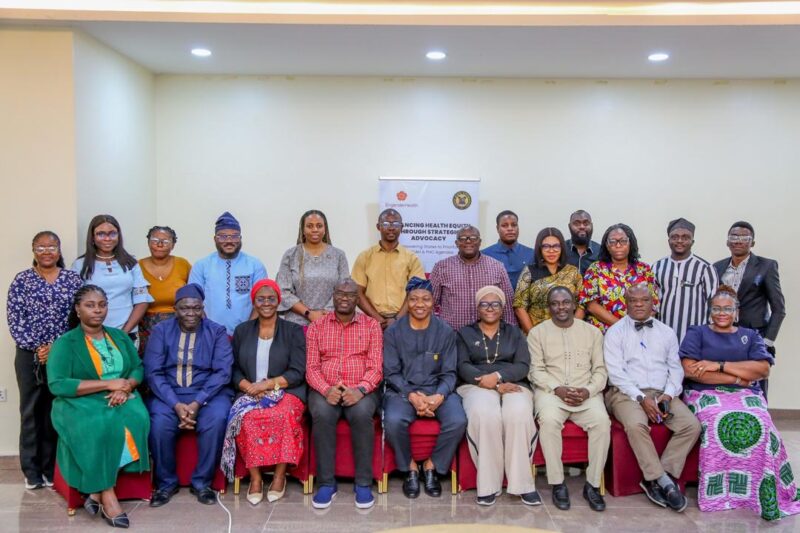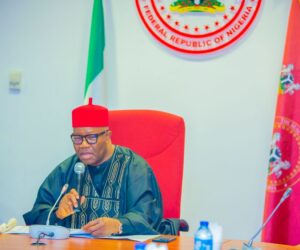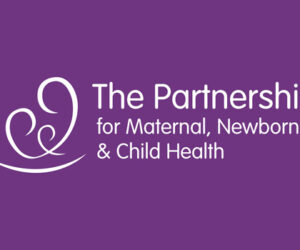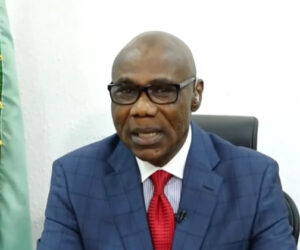1
Empowers State PHC Officials
To strengthen the delivery of primary healthcare (PHC) in Lagos State, a consortium of partners led by EngenderHealth, with support from the Gates Foundation, has organised a strategic advocacy workshop titled, “Advancing Health Equity Through Strategic Advocacy.” The initiative, themed “Empowering States to Prioritise Reproductive Health, Maternal, Newborn, Child and Adolescent Health (RMNCAH) and Nutrition Intervention and PHC Agendas”, aims to galvanise urgent reform and coordinated action across the state’s health sector.
With PHC systems under strain and vulnerable populations bearing the brunt of growing demands, the workshop sets the stage for renewed efforts to hold stakeholders accountable and ensure that health needs are prioritised.

Speaking at the event, Jumare Abdulaziz, Accountability Manager at EngenderHealth, noted that the meeting brought together key stakeholders from the Lagos State Primary Health Care Board, state and district officials, programme managers, and directors of PHC services. The goal, he said, is to empower these actors to drive meaningful change. Abdulaziz stated, “It is a demand for urgency, transparency, and measurable progress. Lagos cannot afford to treat primary healthcare as a peripheral concern. The lives of mothers, children, and entire communities depend on a system that works—not in theory, but in practice.”The workshop aligns with the National Health Sector Renewal Initiative, with a strong focus on revitalising PHC. Abdulaziz emphasised that the team assembled is committed to co-designing a concrete advocacy strategy—not symbolic gestures.The implementation plan under development will centre on three key pillars; Policy which is ensuring that existing health policies are not only enacted but also adequately financed.The next is government Engagement. While Lagos has made commendable strides, stakeholders must ask what more can be done and how advocacy can compel further government action, he said.Similarly, the project demands Accountability. This means strengthening collaboration with Civil Society Organisations (CSOs), including the Lagos Accountability Mechanism (LASAM) for RMNCAH, to ensure that services are delivered effectively at the grassroots level.Also speaking at the workshop, Olakunle Daramola, a public health expert and Lagos State consultant for the Gates Foundation, stressed the importance of strategic advocacy by PHC workers to improve outcomes in RMNCAH and nutrition interventions.Addressing the theme, “Advancing Health Equity Through Strategic Advocacy” and the sub-theme “Empowering States to Prioritise RMNCAH and PHC Agendas,” Daramola urged states to take responsibility and be accountable for the programmes they implement.“This programme will keep the Lagos State Primary Health Care Board—and other states and districts across Nigeria—informed about the need to carry out advocacy activities targeting key actors,” he said. “Effective advocacy ensures that support from government, private sector, and other stakeholders is mobilised.”He warned that without proper advocacy, PHC may not achieve desired results. “With good advocacy, people are well informed, and issues are clearly explained, leading to a more successful PHC system. That’s why this workshop is so important.”Daramola identified key factors for successful PHC advocacy, including: Creating an enabling environment for implementation; Ensuring timely release of approved resources and Strengthening stakeholder engagement.He described the workshop as part of EngenderHealth’s broader plan to ensure successful advocacy for RMNCAH and nutrition—an integrated intervention within the state’s health sector.“When well implemented, advocacy in PHC will strengthen healthcare systems and ensure accountability for a healthier Nigeria,” Daramola concluded.








